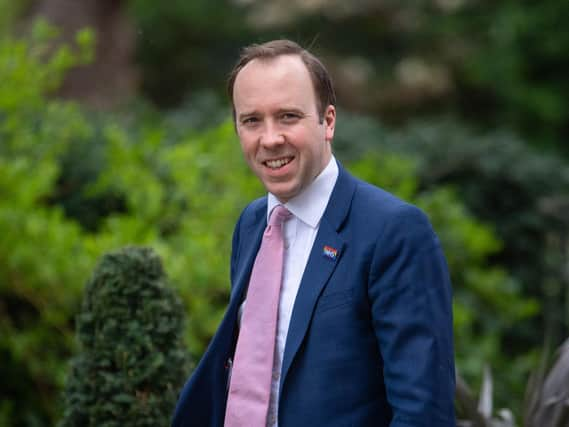Government survey of 25,000 people to track spread of COVID-19 gets underway


In total, 25,000 thousand people will take part in the first phase, with plans to extend it to up to around 300,000 over the next 12 months.
The aim of the study, which involves the University of Oxford, data science company IQVIA UK and the National Biosample Centre in Milton Keynes, is to track the current extent of transmission and infection in the UK and determine how many people are likely to have developed antibodies to the virus.
Advertisement
Hide AdAdvertisement
Hide AdThe initial findings of the study, led by the Department for Health and Social Care and the Office for National Statistics, should be out in early May.
Potential volunteers are being selected from a group who have already taken part in surveys for the Office for National Statistics.
The aim is to create a representative sample of the UK's population by age and geography.
They will be asked to provide samples taken from self-administered nose and throat swabs and answer a few short questions during a home visit by a trained health worker.
Advertisement
Hide AdAdvertisement
Hide AdThe tests will show whether or not they currently have the virus. The volunteers will repeat the tests every week for the first five weeks, then every month for 12 months.
A smaller group, from around 1,000 households, will provide a blood sample taken by a trained nurse, phlebotomist or healthcare assistant.
These will show what percentage of the population have developed antibodies to Covid-19. They will give further samples monthly for the next 12 months.
Health Secretary Matt Hancock said: “This survey will help to track the current extent of transmission and infection in the UK, while also answering crucial questions about immunity as we continue to build up our understanding of this new virus.
Advertisement
Hide AdAdvertisement
Hide Ad“Together, these results will help us better understand the spread of the virus to date, predict the future trajectory and inform future action we take, including crucially the development of ground-breaking new tests and treatments.”
No blood will be taken in households where someone has symptoms of Covid-19 or is self-isolating or shielding.
Tests will be undertaken by IQVIA nurses to minimise the burden on the NHS and those who take part will be able to get their test results from their GPs.
National Statistician Sir Ian Diamond said: “The Office for National Statistics has huge experience in running very large household surveys that gather vital information from a genuinely representative sample of the entire population.
Advertisement
Hide AdAdvertisement
Hide Ad"In this case we’ll be using that capability to help our health expert colleagues to create a reliable picture of the scale of Covid-19 infection and antibody development that will inform the key decisions that lie ahead in this pandemic.”
Professor Sarah Walker of University of Oxford Nuffield Department of Medicine added: “This is one of the largest and most important studies underway into the Covid-19 virus and will transform our understanding of the infection. The University of Oxford is delighted to be the Study Sponsor.”
As of 5pm on 21 April, a total of 18,100 patients have died in hospital after testing positive for coronavirus in the UK.
On Wednesday England's chief medical officer Professor Chris Whitty said the UK was going to have to live with some form of disruptive social measures for at least the rest of the year.
Advertisement
Hide AdAdvertisement
Hide AdHe told the daily press briefing: "We have to be very realistic if people are hoping it's suddenly going to move from where we are in lockdown to where suddenly into everything is gone, that is a wholly unrealistic expectation."